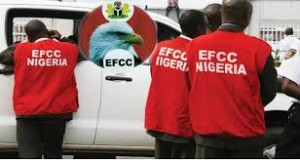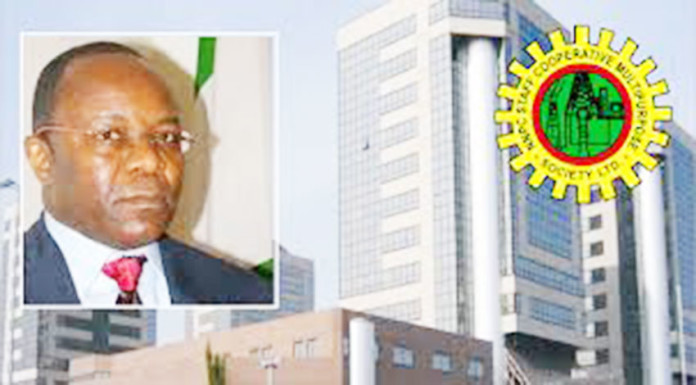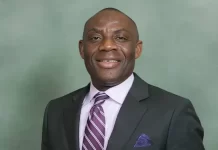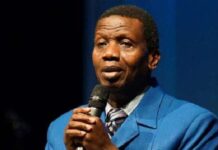Hope was rekindled Wednesday after crude oil price rose 40 cents to $33.12 per barrel, paring earlier losses after fresh comments from Russia about its openness to talks with the Organisation of the Petroleum Exporting Countries (OPEC) over output cuts.
Russian Foreign Minister Sergei Lavrov, said if there is consensus among OPEC and non-OPEC members to meet, “then we will meet”.
This helped to push the price of oil, which had been set for a third day of decline after data on Tuesday showed another big build-up in U.S. inventories, off the day’s lows.
Brent for April delivery rose 40 cents to $33.12 a barrel, pulling away from a session low of $32.30.
US crude futures rose 46 cents to $30.34, off a session low of $29.40.
“Is there going to be a meeting between Russia and OPEC? That is a supportive factor in this rally that we’ve seen in the last one hour,” PVM Oil Associates analyst Tamas Varga, said.
Oil is the mainstay of the Nigerian economy and the country is reeling from huge revenue loss following the crash of crude oil price.
Late last month, oil price rose further above $30 a barrel on hopes that OPEC and non-OPEC producers may reach a deal to tackle one of the biggest supply gluts in decades.
OPEC has been making renewed calls for rival producers to cut supply alongside its members. Russia, seen as key to any deal at that time, refused to cooperate.
Iraq’s oil minister had said he saw some flexibility for a deal between OPEC and non-OPEC.
“Without a production agreement, fundamentals point to lower numbers,” said David Hufton of oil brokers PVM. “With one, oil becomes a 40-to-60 dollars-a-barrel market.”
US oil falls for 3rd session on rising crude stocks
Oil prices jumped 8 per cent higher Wednesday, snapping a two-day rout after investors took advantage of a weaker US dollar and shrugged off data showing an unexpected large surge in US crude inventories to record highs.
Comments by Russia’s foreign minister reiterating the major producer’s willingness to meet if there was consensus among the OPEC and non-OPEC members also reignited hopes of a deal to trim output and helped to boost prices.
Reuters reports that the dollar index tumbled to an over seven-week low, making commodities priced in the greenback cheaper for holders of other currencies, amid growing scepticism that the Federal Reserve would be able to hike US interest rates again this year and after data showed the US services industry grew more slowly than expected last month.
US crude closed with one of its biggest gains in five months, rising $2.40, or 8 per cent, to $32.28. Brent futures settled up $2.32, or 7.1 per cent, at $35.04 a barrel, after rising as high as $35.11.
“US heating oil futures finished 6.7 per cent firmer after the US weather model called for seasonal cold over the next two weeks.
“We’re getting the rally in crude oil from the pounding that the dollar is taking,” said Robert Yawger, senior vice president of energy futures at Mizuho Securities USA.
NNPC unbundles PPMC into 3 firms
… Seeks NASS’ support over funds for projects
The Nigerian National Petroleum Corporation (NNPC) Wednesday announced the unbundling of one of its subsidiaries, the Pipelines and Products Marketing Company (PPMC) into three different companies in order to guarantee energy efficiency and security.
Minister of State for Petroleum, Dr Ibe Kachikwu, listed them as Pipelines Company, Products Marketing Company and a storage company.
As oil price continues to trade low at the international market, forcing oil-dependent economies to seek alternative sources of funding, the Minister of State for Petroleum Resources, Kachikwu, in a statement by the NNPC’s spokesman, Ohi Alegbe, urged members of the National Assembly to enact legislations that support the growth and development of the petroleum sector in order to make the industry work well.
The minister, who noted that the petroleum industry is currently undergoing fundamental changes in the face of dwindling global crude oil prices, sued for the support of members of the National Assembly to allow NNPC solicit for funds from private local and international investors to execute its capital projects.
Kachikwu made the appeal when he received the House of Representatives Committee on Petroleum Downstream at the NNPC Towers in Abuja during their oversight visit to the Corporation.
Also, the Corporation pledged to collaborate with the National Assembly to ensure efficiency and transformation of the downstream sector of the petroleum industry.
He informed the lawmakers that the NNPC had complied with the federal government’s directive on the Treasury Single Account (TSA) which promotes probity and accountability in the day-to-day operations of the corporation.
According to him, despite the challenging environment, especially in the area of pipeline security, the NNPC is mandated to ensure steady supply and distribution of petroleum products such as premium motor spirit (petrol), automotive gas oil (diesel) and dual purpose kerosene (kerosene) across the country.
In view of this responsibility, Kachikwu stated that NNPC was going into joint venture partnerships with state governments and private companies to expand its retail outlets across the country in order to meet national energy emergency need.
Earlier, the chairman of the House Committee on Petroleum (Downstream), Hon. Joseph Akinlaja, who led the group, assured the minister of the preparedness of the National Assembly to support the Federal Government in carrying out its fundamental restructuring of the oil and gas industry in order for it benefit Nigerians and the nation’s economy.
EFCC recovers over $14m unpaid oil tax
The Economic and Financial Crimes Commission (EFCC) has recovered over $14 million (about N4,380,295,866 at the rate of N303/dollar) for the Federal Government, being crude oil royalties which were supposed to have been paid between 2011 and 2012 by an oil and gas company operating in the upstream sector of the Nigerian oil industry.
The money was finally paid into the Federal Government’s account with JP Morgan Chase on January 29 after EFCC waded forcefully into the matter of recovering taxes due to the government.

Sources at the commission disclosed that the investigation of tax defaulters in the oil industry is continuing, and warned that those who failed to pay up willingly stand the risk of arrest and prosecution for tax fraud.
Meanwhile, barely two weeks after President Muhammadu Buhari signed a Mutual Legal Assistance agreement with the United Arab Emirate on the repatriation of stolen funds and extradition of indicted officials, the acting chairman of the EFCC, Ibrahim Magu, Wednesday met with the UAE Ambassador to Nigeria Mahmud Muhammad Al- Mahmud, in his office in Maitama, Abuja, seeking the strengthening of the existing relationship between Nigeria and UAE with a view to effectively tackle corruption within the African continent.
“The fight against graft requires the collaborative support of all and sundry, especially the international community, for it to be won,” Magu said.
According to the EFCC boss, the present administration in the country is poised to recover the nation’s common wealth looted and laundered in foreign countries by corrupt elements.
He said the Commission had intelligence that the UAE was considered a safe haven by corrupt politically exposed persons in Nigeria.
“I have come to seek your support and cooperation just as we had in the case of Diepreye Solomon Peter Alamieyeseigha and James Ibori, among others, to get the mission accomplished,” Magu pleaded.
In his remark, the UAE Ambassador, Al-Mahmud, pledged the support of his country to Nigeria’s anti-graft war saying, “No country can be an island on its own without the support of others.”
Nigeria loses N1trn to crude production cost annually – Reps Appropriation C’ttee chair
* Moves to reduce the $38 oil benchmark for 2016 Budget
The Chairman of the House of Representatives Standing Committee on Appropriation, Hon. Abdulmumin Jibrin (APC, Kano) has revealed that Nigeria loses an average of N1 trillion every year as production cost in the exploration of crude oil.
Jibrin, who disclosed this to journalists while fielding questions on the 2016 budget, said as a result of the dwindling international market price of oil, the House would consider a reduction of the benchmark of $38 per barrel at the time the budget proposal was prepared.
He noted that with the current price of about $30 per barrel, there was the need to review the benchmark to meet with the current realities.
“One very important aspect that swallows a large chunk of the money in the budget is the cash call and production costs. Many people take their eyes away from production costs, but it is critical. This is because, every year, we pay an average of N1 trillion as cost of production. So, it is important that this time around, we need to sit with the relevant authorities in the oil and gas sector to see the details of this production cost, to ensure the country is not just being short-changed.
“We are just mopping up a lot of money from the first line charge just to give to our foreign partners. The benchmark has been pegged at $38 and, of course, we have known that the oil price has gone much below that figure. I am sure that during this budgeting period, we will engage again with the Committee on Finance and relevant committees and we should be able to peg the benchmark at a very safe figure that should be more realistic.”
He also said that there was the need to reduce domestic borrowing and increase external borrowing in implementing the budget.
The lawmaker, who said the budget proposal would be passed by both chambers of the National Assembly by February 25, this year, called for fiscal discipline among ministries, departments and agencies (MDAs) of government with regard to personnel costs and returns.
On alleged padding of figures in the budget as recently uncovered by the Senate, Jibrin said the House standing committees had enough brains to know where and when padding had taken place and to block them.
“We will not pad; neither are we going to encourage that in the National Assembly,” he declared.
NDDC Funding: Senate summons AGF over NLNG, EFO
The Senate Wednesday invited the Accountant General of the Federation (AGF) to explain why some Federal government agencies’ contributions were not being remitted to the Niger Delta Development Commission (NNDC).
The Chairman of the Senate Committee on Niger Delta, Senator Peter Nwaoboshi, who gave the directive, lamented that the money meant to be paid to NDDC from the Nigerian Liquefied Natural Gas (NLNG) and Ecological Fund Office (EFO) – which they had failed to remit for the last 16 years – was a colossal amount.
Speaking when the management of NLNG and EFO appeared before the Senate panel to explain why they had not been keeping their obligations to NDDC, Nwaoboshi asserted that, by their actions, the NLNG and EFO had disobeyed the laws of the country.
He disclosed that the committee was conducting a holistic investigation into the activities of NDDC, especially why they were not performing well despite the huge resources at their disposal.
“Everybody has been complaining that the NDDC was not performing; but they did not know that the agency had not been receiving its dues especially from the oil companies,” he said.
The Senator explained that the oil companies were supposed to pay three per cent of their budget to NDDC, but they were giving less than that.
The Permanent Secretary, Ecological Fund Office, Mr Mohammed Abass told the committee that NDDC was supposed to receive its funding from the states and local governments’ share of the fund.
“The Ecological Fund Office has made contributions, not to the NDDC. Our office receives one per cent of the approved money due to the consolidated fund, which is the federal government share of the Federation Account. Every other state in the federation receives one per cent of the fund too. The account is called derivation and ecology.
“The Fiscal Allocation Committee shares two per cent of the funds in the Federation Account to the federal, states and local governments. The Federal government receives 48.5 per cent, states receive 24 per cent while the local governments receive 20 per cent.
“The Ecological Fund Office manages the Federal government share. Therefore, the Ecological Fund Office is not supposed to fund any state from its own resources because every state gets its own share of the allocation from the Federation account and not from the consolidated revenue fund.”
-Leadership













